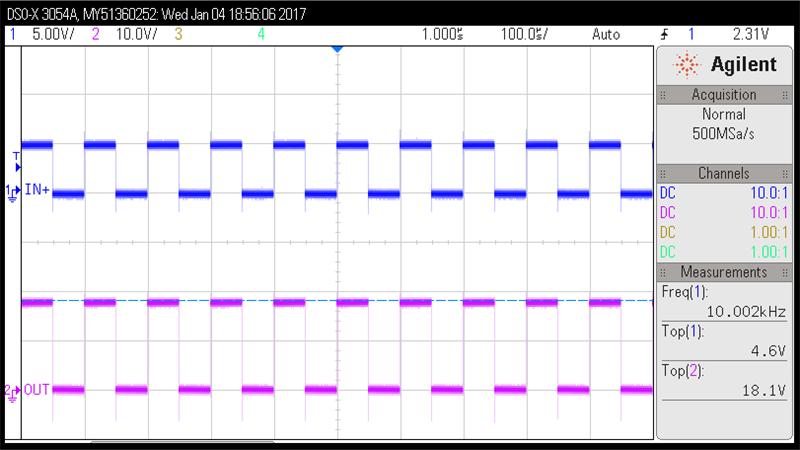SLLSER8J June 2017 – August 2024
PRODUCTION DATA
- 1
- 1 Features
- 2 Applications
- 3 Description
- 4 Device Comparison Table
- 5 Pin Configuration and Function
-
6 Specifications
- 6.1 Absolute Maximum Ratings
- 6.2 ESD Ratings
- 6.3 Recommended Operating Conditions
- 6.4 Thermal Information
- 6.5 Power Ratings
- 6.6 Insulation Specifications for D Package
- 6.7 Insulation Specifications for DWV Package
- 6.8 Safety-Related Certifications For D Package
- 6.9 Safety-Related Certifications For DWV Package
- 6.10 Safety Limiting Values
- 6.11 Electrical Characteristics
- 6.12 Switching Characteristics
- 6.13 Insulation Characteristics Curves
- 6.14 Typical Characteristics
- 7 Parameter Measurement Information
- 8 Detailed Description
- 9 Application and Implementation
- 10Power Supply Recommendations
- 11Layout
- 12Device and Documentation Support
- 13Revision History
- 14Mechanical, Packaging, and Orderable Information
9.2.4 Application Curve

| VCC2 = 20 V | VEE2 = GND | fSW = 10 kHz |